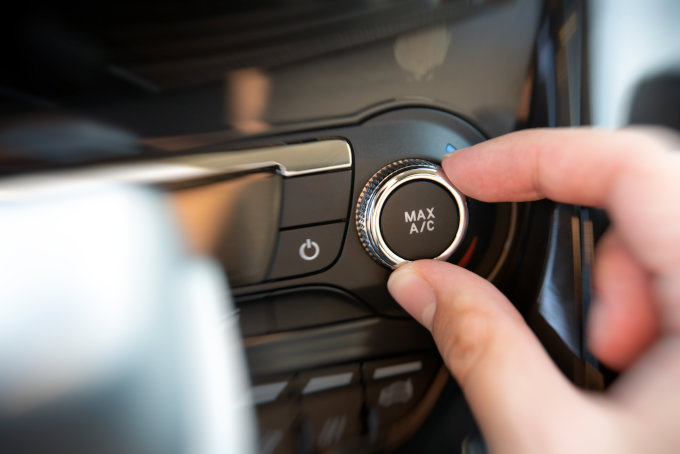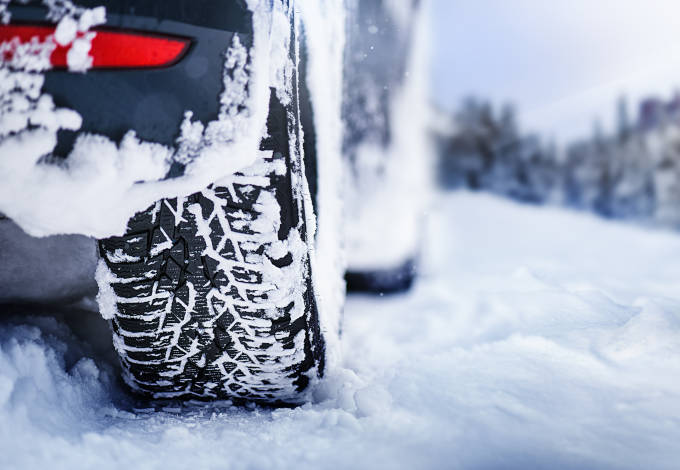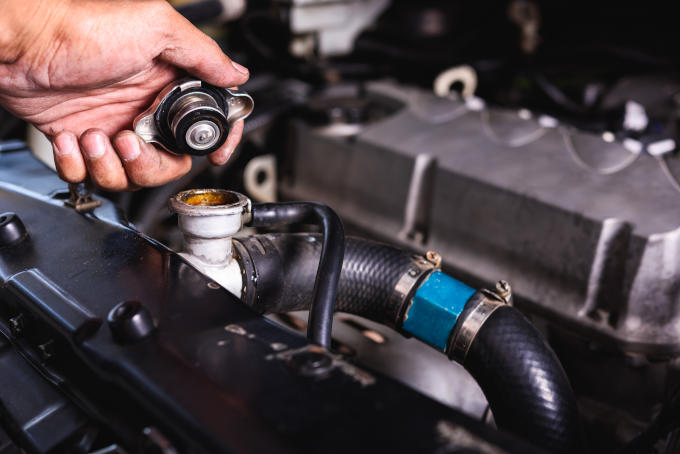Originally published on 06/03/2021
Updated on 07/26/2024
After a long winter, the warm months are finally here. For many, this means road trips, vacations, and a chance to switch the car heater to the cool and refreshing A/C. But realizing your A/C isn't working properly when you need it most can be frustrating.
Understanding the most common causes of A/C issues and how to prevent them can help you enjoy your spring and summer drives better.
6 Common Air Conditioning Problems (And Their Root Causes)
Wondering why your A/C struggles to keep up in the warmer months? Here are the top 6 A/C problems and their potential causes:
1. A/C Is Running, but No Cold Air Is Flowing
If your A/C is operating but no cold air is flowing through the vents, your vehicle might be low on refrigerant. This can be due to a leak caused by overuse or lack of use.
How to fix: While you can often notice a leak by its tell-tale signs of moisture, some leaks in A/C units may not be visible and may require a mechanic to diagnose. A trained automotive expert will use tracer dye to track any leakage and fix the issue quickly.
2. No Air Is Flowing
If you notice that your A/C is turned all the way on and there's little to no airflow, you might have one of the following issues:
- Bad fuse or relay
- Blower motor issues
- Blocked air intake
- Belt & hose issues
How to fix: With so many potential causes, it is best to seek the help of a trained A/C technician to identify and fix the issues. Most often, you will start by checking and replacing any fuses or relays, as this is one of the most common reasons that fans stop blowing air efficiently.
3. The Air Is Cool but Does Not Get Cold
If your A/C is blowing cool air but not cold enough, the problem might be low refrigerant due to a lack of power to the condenser or clutch switch. If these components aren’t operating correctly, your A/C may struggle to cool the air properly.
How to fix: Work with a technician to run diagnostic checks on your clutch switch and condenser. If tests show blockage or failure, then it may be time to replace them.
4. Your Air Has a Mildew Smell
If the cool air from your A/C has a noxious odor, similar to mildew, you may have a filter problem. Any part of your vehicle that interacts with moisture can fall victim to bacteria, fungi, and mold growth. These undesirables can grow on the evaporator and then flow out through your vents.
How to fix: Check and replace your air filter regularly. If the issue persists, work with a trained technician to remediate any problems.
5. The A/C Is Making a Loud, Unexpected Noise
Unusual sounds from your A/C, like rattling or rumbling, could indicate multiple problems depending on the location of the sound. These can include filter blockage, loose tubes or hoses, or a compressor clutch failure.
How to fix: Anytime you hear an unexpected noise, visit a mechanic immediately. They will examine your A/C unit and determine the cause of the noise.
6. Water Appears on the Floorboards
Water on your floorboards, whether a tiny bit or a pool, is a bad sign. This may be due to bacteria or a filter blockage resulting in a slimy film that blocks the water drain line. If the rubber hose is blocked, it can overflow and lead to water pooling on your floorboards.
How to fix: Time is of the essence with any water issue. Visit your local mechanic or automotive technician, and they should quickly identify the source of the moisture and help you remedy it.
5 Tips To Protect Your A/C
Don’t Turn the A/C On Until You Are Moving
Starting your A/C when stationary can drain its power and waste energy. Your A/C operates best when the engine’s crankshaft is rotating the compressor. Wait until your car is moving to turn on the A/C.
Inspect the Refrigerant, Condenser, & Filter
Before hitting the road, check these major elements of your A/C unit:
- Refrigerant: Ensure it's topped off and shows no signs of leakage.
- Condenser: Located behind the front grill, the condenser can collect dirt and grime, blocking airflow. Clean it by spraying with water.
- Filter: Make sure your filter is clean if the A/C is struggling.
Don’t Be Afraid of Recirculation
Roll down the windows to circulate cooler air, then switch to recirculation mode. This reduces the stress on your A/C.
Stay Parked in the Shade
Parking in the shade can reduce the heat build-up in your car, helping your A/C stay efficient.
Never Skip Your Routine Maintenance
Regular car maintenance is crucial. During tune-ups or inspections, ensure your mechanic checks the A/C unit to catch problems early and prevent breakdowns.
Keep Your Cool with Proper A/C Care
Investing in routine maintenance and care is one of the best ways to protect your A/C unit. If you notice any issues, visit your local mechanic for a thorough check. A trained A/C technician can identify, diagnose, and fix problems promptly.
By taking care of your A/C today, you can ensure cool air right when you need it this year!










